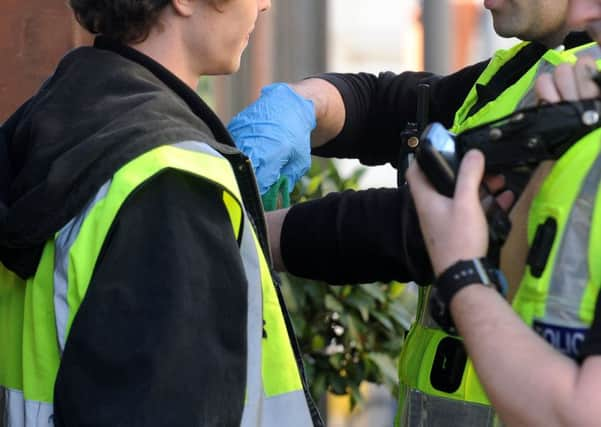Salmond in warning over ‘social evil’ of knife crime


MSPs yesterday passed the Criminal Justice (Scotland) Bill, which includes provisions for a new statutory code governing the controversial police tactic.
The legislation will also increase the maximum sentence for possession of a knife or offensive weapon from four to five years. However, controversial proposals to scrap the centuries-old principle of corroboration were dropped.
Advertisement
Hide AdAdvertisement
Hide AdJustice secretary Michael Matheson confirmed in September that Police Scotland is to end non-statutory stop and searches of adults and children.
It followed a report by an advisory group led by John Scott QC which said ending non-statutory, or “consensual” stop and search would not lead to “significant gaps” in the police’s powers.
Mr Salmond said the reduction in knife-carrying which had led to an “epidemic” of knife crime during his early years as first minister had been a “huge achievement”.
He said: “My concern is that there’s a very strong correlation in my mind between the decline in knife crime in Scotland and therefore casualties and deaths from knife crime and the use of stop and search powers by the police.”
Mr Salmond said there had been a 13 per cent rise in knife crime in England following a “substantial decline” in stop and search activity.
He added: “We should be extremely careful to dimiss there being a connection between the two. We would make a fatal bargain if in pursuit of finding an absolute certainty of how we conduct our operations we didn’t acknowledge that our primary duty is to make absolutely sure that decline in knife crime and therefore tragedy and fatality as a result is not in any way impeded.”
Mr Matheson said:“Since 2006-7 there has been a very dramatic reduction in the level of knife crime in Scotland overall, particularly in the west coast of Scotland, which of course has a correlation into significant reduction in the number of homicides.”
He said there had also been a “significant drop off” in police stop and search activity during the past few years.
He added: “I’m confident that given the code of pratice, [the police] will have the necessary powers to continue that work and continue to drive down knife crime and the issues associated with it.”